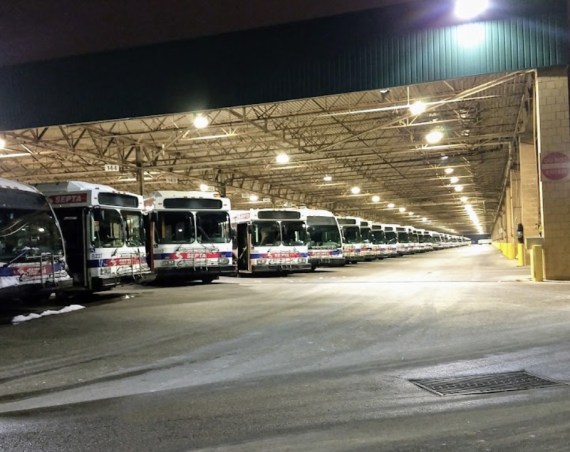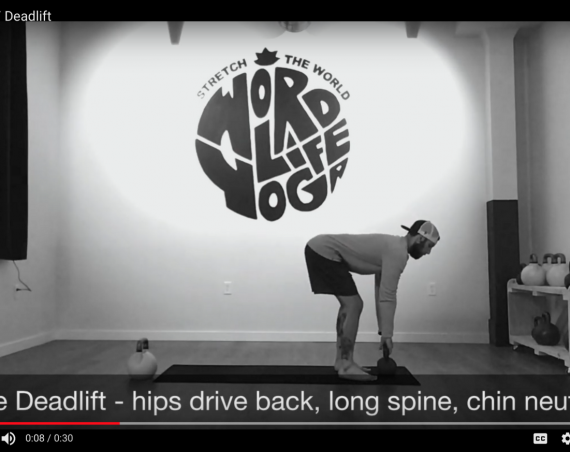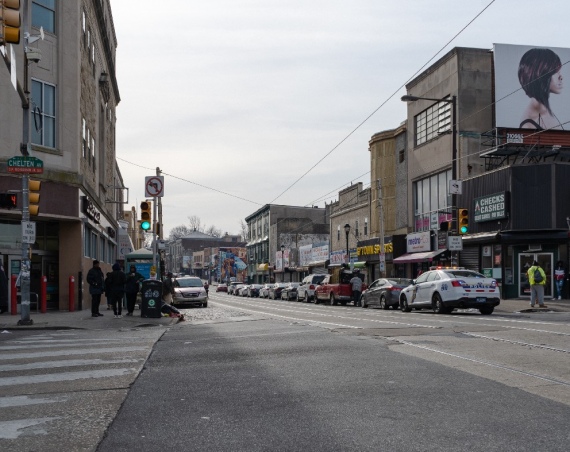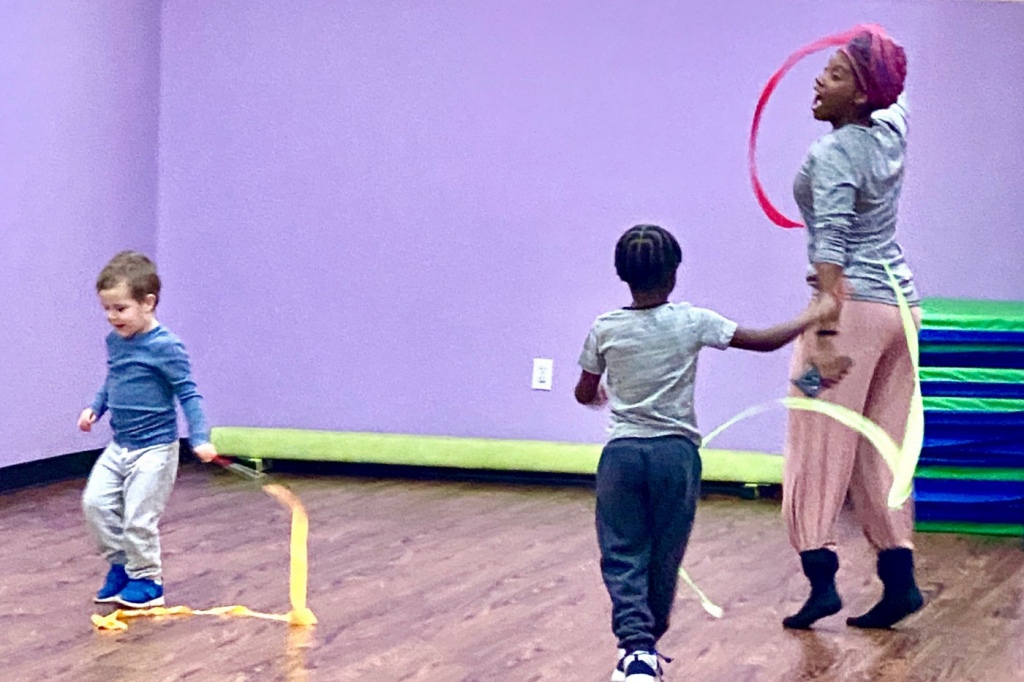
Dance classes just became more accessible in Germantown.
Lea Schwartz is the owner of the Rain Dance Studio on Greene Street. The three-month-old studio holds a variety of classes, including those for children with special needs. They have an enrollment of 180 students, and each participant chooses how expensive their class is.
Rain is a “pay what you can” opportunity for students. “I never wanted to just open up a regular studio and just kind of be another face in the crowd,” Schwartz said. “There are no dance studios really in the area where it’s a pay what you can situation, and a lot of people, I feel like, would love to dance but are not able to afford it.”
Schwartz has a bachelor’s degree in child and adolescent psychology. She trained at the Koresh Dance Company in Philadelphia, and several studios in New York. She is currently a child therapist, but always dreamed of opening an affordable studio, that also caters to special needs children.
Although Rain is donation-based, Schwartz said all her instructors, and herself, are highly qualified. She said it is common for people to think Rain is not a “real” dance studio because it is inexpensive.
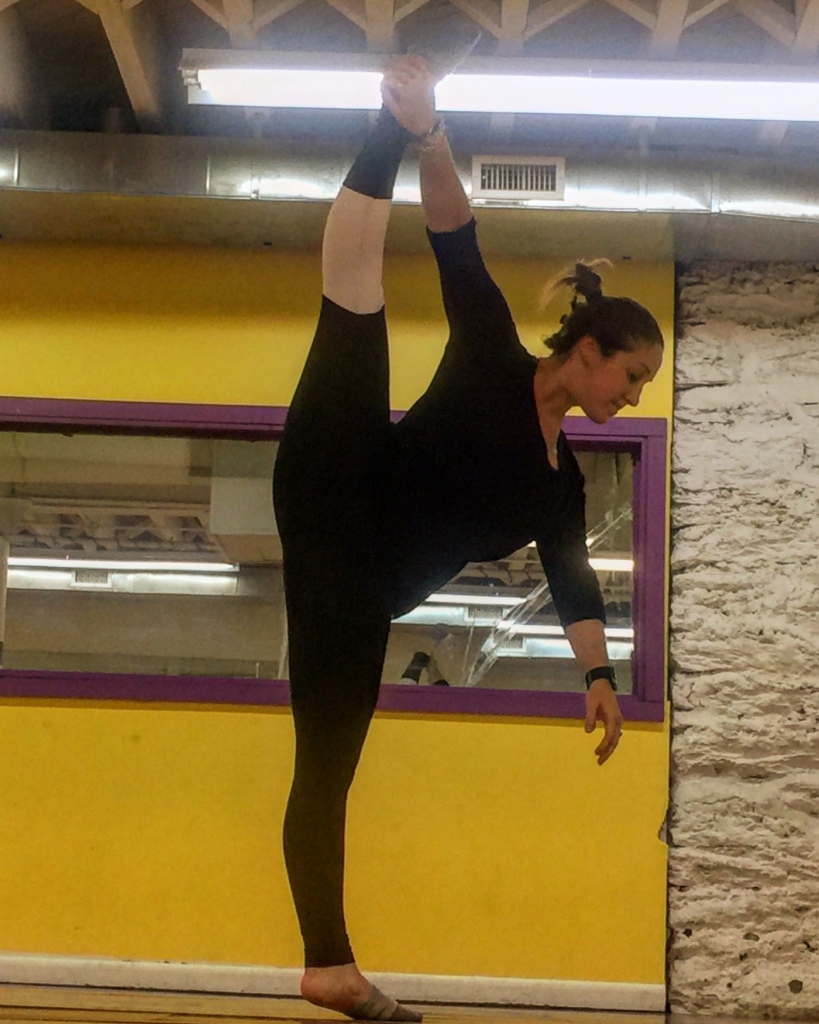
Ladonna Matchett is an instructor for Rain. She is currently pursuing a masters in dance/movement therapy and counseling, and in 2015 she was accepted to present internationally at the Beijing Dance Festival where she worked with a large number of world-renowned artists.
Matchett teaches creative movement, a sensory oriented class for ages 3–6. Creative movement allows children to noncompetitively participate in a success-oriented dance experience. Schwartz said this class combines dance with therapy, which is beneficial for special needs children.
“Getting them to a point where they can expand what their range of motion is also just sort of testing the boundaries of their balance,” Matchett said. “ And they get to have fun, run around, make friends, build community.”
According to a study by Grand Valley State University, creative movement improves social interaction skills of children on the autism spectrum. Autism is a developmental disorder of variable severity that is characterized by difficulty in social interaction and communication, and by restricted or repetitive patterns of thought and behavior.
Meghan Kalinowski enrolled her son Henry, 3, to Rain for the creative movement class. Henry is on the autism spectrum, but since joining Rain, Kalinowski said Henry has improved his social skills.
“He’s gone from not understanding what dance class was to actually like asking for it now and he gets very, very excited, very motivated,” said Kalinowski. “He’s starting to be verbal about it, and he runs around like a little wombat for a good hour.”
Kalinowski is appreciative of the “pay what you can” element. “That’s beneficial in a major way, especially when you have a kid who has special needs all the extra costs that go along with that,” Kalinowski said. “Anywhere that you can find something that isn’t nearly as expensive is a wonderful resource.”
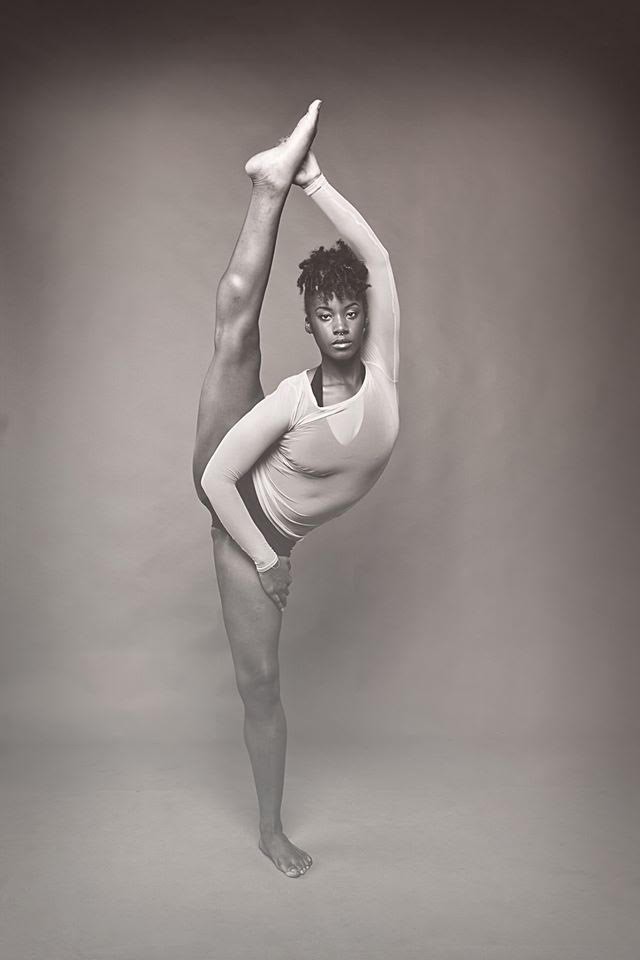
In addition to creative movement, the studio also offers hip hop, modern contemporary, ballet, acrobat/tumbling, African, jazz and tap. Although the studio is donation-based, Schwartz is looking to implement outside funding to continue serving the community. The studio owner wants her program to sustain without eliminating the “pay what you can” method.
A similar organization in Manhattan, NY has sustained a donation-based method for ten years. Liberated Movement dance studio was co-founded by Lauren Pellettieri. The studio has a similar goal to Rain, to create accessible dance lessons to everyone.
“So we think that by being donation-based we remove a financial barrier for people wanting to explore movement and dance,” Pellettieri said, “and then also socially, we work towards inviting a different narrative around, engaging with movement.”
A huge part of Liberated’s longevity is their donation recommendations, compensation method and fundraisers. This studio accepts any donation, but suggests students pay $15 per class Additionally, her dance instructors are only compensated 60 percent of what the instructed class brings in through donations, rather than a flat fee.
Moreover, Pellettieri said their organization usually breaks even, but fundraisers always come in handy when funds come up short. “We’ve had some times where the rent rate has gone up, and we’re kind of like, ‘Oh my god, what do we do,’” Pellettieri said, “ but that will motivate us to like, have a fundraiser event of some kind and raise like a couple of extra thousand dollars.”
Although Liberated Movement has existed for a decade, they still look for grants to help. Schwartz said Rain will soon look for grants as well to preserve their studio. Currently Rain looks for more dancers to joining their program before registration ends Feb. 1.

